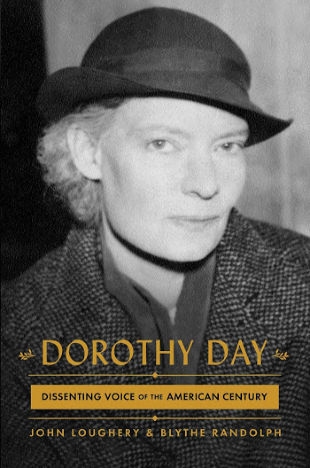Dorothy Day -
Dissenting Voice of the American Century
By John Loughery, Blythe Randolph -
An introduction to the many sides and views of Dorothy Day. -
A Book Excerpt on Questing by Sun and Planets Spirituality AYINRIN

From the Palace Of Kabiesi Ebo Afin! Ebo Afin Kabiesi! His Magnificence Oloja Elejio Oba Olofin Pele Joshua Obasa De Medici Osangangan broad-daylight natural blood line 100% Royalty The God, LLB Hons, BL, Warlord, Bonafide King of Ile Ife kingdom and Bonafide King of Ijero Kingdom, Number 1 Sun worshiper in the Whole World.I'm His Magnificence the Crown.
For Spiritual Consultations, Spiritual divination reading, Guidance and Counseling, spiritual products and spiritual Services, offering of Spiritual Declarations , call or text Palace and Temple Phone and Whatsapp contact: +2348166343145, Phone And WhatsApp Contact : +2347019686274 ,Mail: obanifa87@gmail.com, Facebook page: Sun Spirituality.Website:www.sunspirituality.com.
Our Sun spiritual Temple deliver Spiritual Services to Companies owners, CEOs, Business brands owners, Bankers, Technologists, Monarchs, Military officers, Entrepreneurs, Top Hierarchy State Politicians, and any Public figures across the planet.
Author:His Magnificence the Crown, Kabiesi Ebo Afin! Oloja Elejio Oba Olofin Pele Joshua Obasa De Medici Osangangan Broad daylight
"In the end, no category of common experience will neatly and precisely define this woman. She was dismayed by the Supreme Court's rule in Roe v. Wade, but was never willing to condemn those women as beyond redemption who had committed that grievous sin and would have been distressed by Cardinal John O'Connor's attempts to enlist her as a posthumous leader, a 'poster child,' of the prolife movement. She believed in helping women find their own voice, yet had scant regard for the second wave of feminism in the 1970s. (Rather like Edith Wharton, who never saw the point of the suffrage movement, or Georgia O'Keeffe, who belittled the idea of exhibitions of 'women artists,' Day was of a generation who believed that strong women simply found their own way.) Her support for unionization waned as she came to believe that labor leaders were committed to securing for their members higher wages and better working conditions, but not to any larger social and spiritual change. The counterculture of the 1960s was a largely distasteful phenomenon to her, but no one was more anti-establishment than Dorothy Day. She abhorred the values of the business world, entirely committed to competition and profit, but was equally critical of Lyndon Johnson's War on Poverty and any other solution to a social ill that involved the federal government's bureaucracy and big-spending practices, leaving citizens to feel freed from their own obligations to those in need.


No comments:
Post a Comment
Note: Only a member of this blog may post a comment.